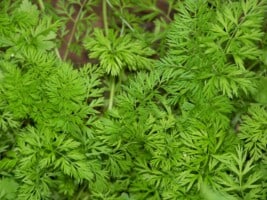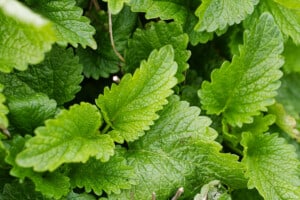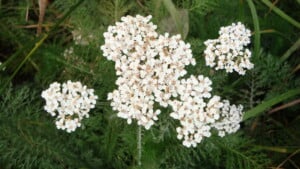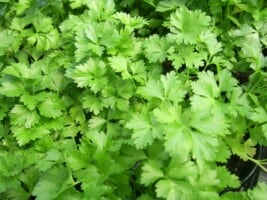Elephant ears are an important source of food throughout Asia. They are also known by the name Colocasia or taro. They are eaten by people and farm animals, and they are used in Hawaiian luaus; parts of this plant are in one of the most popular Hawaiian dishes, poi. However, you may have heard that they can be poisonous.
Contents
Elephant ears are poisonous because they have calcium oxalate, which is also oxalic acid. It is a chemical compound that also exists in Dieffenbachia leaves, and it has sharp crystals in it that can be deadly in larger amounts. That said, when the plant is cooked, the crystals break down. There are different species of the plant as well, and some are more poisonous than others.
Related: Are Eucalyptus Leaves Poisonous? | Are Peace Lilies Poisonous?
Are Elephant Ears Poisonous to People?
Elephant ears are poisonous to people if eaten when they are uncooked. The leaves and stems are the most toxic part of the plant when it is growing in the yard, and touching them can lead to itching and skin irritation. The sap can make your eyes burn, so you should never touch your eyes after touching this plant.
If you eat elephant ear leaves, it causes a burning sensation on the mouth and lips. You would need to eat quite a bit for it to be deadly, but there are symptoms to look out for, including the following:
- Burning eyes
- Burning mouth, tongue, and lips
- Swelling in mouth
- Nausea
- Vomiting
- Diarrhea
If you have a child who eats elephant ears from the yard, you should take a wet cloth and wipe the mouth out. You can flush the child’s eyes with saline or water. If you notice any swelling, you should go to the ER.
The best way to grow elephant ears without the risk for poisoning is to make sure they are out of the reach of children. You need to pick up leaves that fall from the plant because they are toxic as well. However, you might consider replacing this plant with another tropical plant that isn’t poisonous.
Are Elephant Ears Poisonous to Dogs?
Elephant ears are poisonous to dogs. If your dog eats elephant ear, it can be fatal, so you need to seek treatment right away. The first symptom you will see is trouble breathing from a swollen airway. You should rinse your dog’s mouth with cold water and clean any plant residue off of its face.
This type of poisoning is called alocasia poisoning, and it comes from the calcium oxalate crystals that will leech into the tissues in your dog’s mouth. You will notice your dog pawing at its face, vomiting, and foaming at the mouth, and you may see swelling. If you don’t seek treatment, it can become fatal quickly.
Your dog can be poisoned by eating any part of the elephant ear, including the leaves, root, and stalk. Your dog can also have skin irritations, itching, and swelling from contact with the plant. When you take your dog to the vet, they will perform a physical exam and run blood tests. They will offer supportive care. You should consider removing this plant from your yard if you have dogs.
Are Elephant Ears Poisonous to Cats?
Elephant ears are poisonous to cats. If your cat comes in contact with this plant, it can suffer symptoms ranging from skin irritation to nausea, vomiting, diarrhea, and trouble breathing. Elephant ears have an unusual look, and they are grown in many gardens. Cats need to eat quite a bit of the plant to suffer from severe poisoning.
When cats first bite into the plant, it causes irritation and burning in the mouth, so they normally don’t eat more of it. However, if your cat does eat enough to suffer poisoning, it is an emergency and you need to take the cat to the vet right away. The vet will examine your cat and take blood. Then, they will offer supportive care with fluids and some medications.
Are Elephant Ears Poisonous to Livestock?
Elephant ears are poisonous to horses, to cattle, to goats, to sheep, and to chickens. The calcium oxalate crystals can penetrate their tongues, throats, and the inside of the mouth. This leads to severe irritation. All parts of the plant are poisonous, and it can be fatal if enough is eaten.
It is rare that a horse will eat a lot of this plant because they will have serious irritation in the mouth as soon as they take the first bite. In addition, it doesn’t taste good to them. If your horse eats this plant, you will notice it shaking its head and possibly foaming at the mouth or drooling. You should try to wash its mouth out right away.
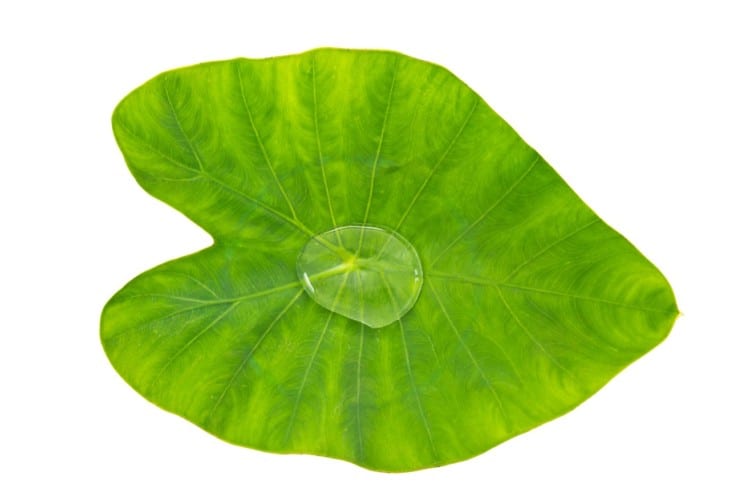
If your goat eats elephant ears, it can be dangerous. It is important to make sure that your goats and sheep don’t have any access to this plant because it can be fatal if they eat too much. Chickens are also at risk if they eat elephant ears. Chickens are affected by the raphides in this plant, and they can cause severe symptoms. They are tiny, needle-shaped substances that are made of crystallized calcium oxalate.
When elephant ear plants are damaged, they release the raphides, and your chicken will swallow it. This causes the tiny needles to bury themselves in the tissues in the chicken’s stomach and esophagus. It causes severe pain, and your chicken won’t want to eat. If you have free-range chickens, you shouldn’t grow this plant in your yard.
Many people believe that chickens know by instinct when a plant is dangerous or poisonous, but they can accidentally peck the leaves or stems and be affected. If your chicken is poisoned by this plant, you can offer it water with Epsom salt as a laxative. However, you will likely need to seek help from a vet.
Are Elephant Ears Poisonous to Wild Animals?
Although elephant ears are poisonous to deer and other wild animals, they are considered a deer-resistant plant. Deer stay away from herbs and ornamental plants with sharp edges. However, if a deer or other animal is hungry enough, they will eat just about anything. It is a good idea to keep elephant ears behind a fence or tucked in with other plants.




